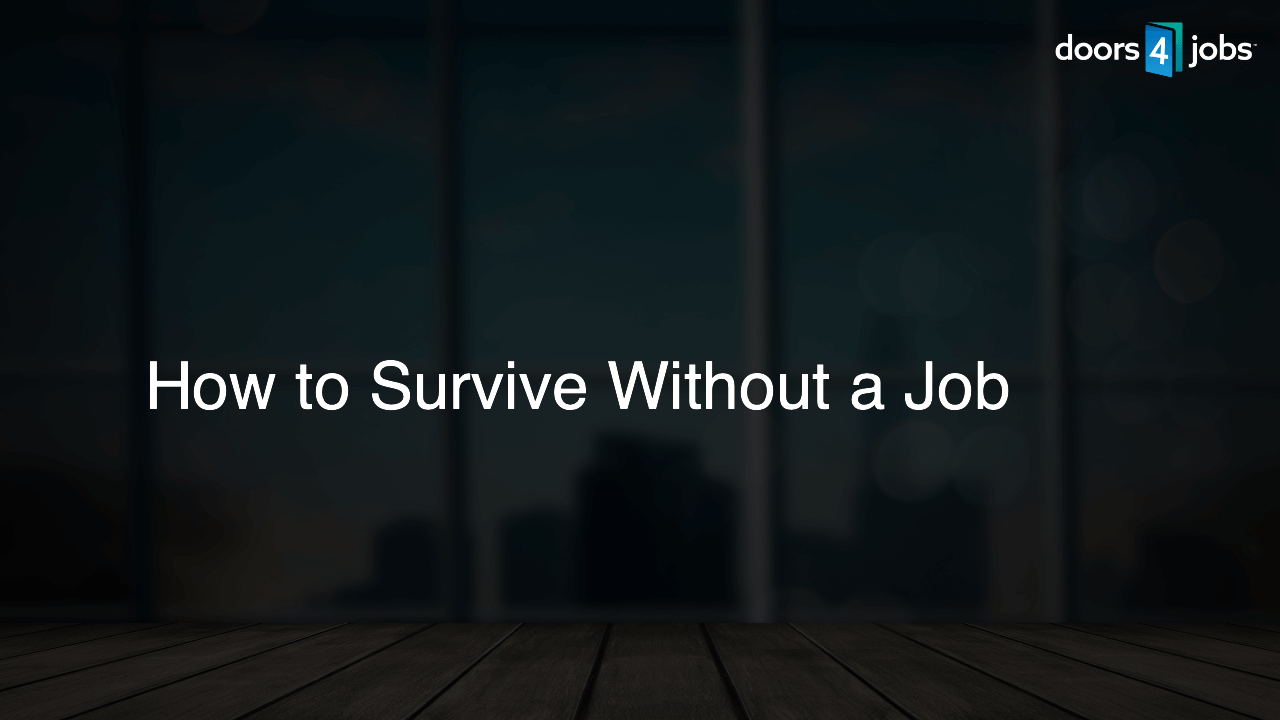To survive without a job, focus on reducing expenses, generating income through alternative sources, networking, learning new skills, and prioritizing self-care. Utilize savings, freelance work, gig economy, passive income streams, and government assistance to stay financially afloat. Invest time in nurturing relationships, building a personal brand, and exploring new opportunities for growth and personal satisfaction.
Embrace Cost Reduction
Minimize expenses by eliminating non-essentials and embracing frugality. Cut costs on rent, utilities, transportation, and daily expenses. Cook at home, opt for public transportation, and shop smartly to save money.
Earn Through Alternative Sources
Explore alternative income streams, such as grant-funded projects, remote freelance work, or joining the gig economy. You can pursue online tutoring, freelance writing, or offer consulting services in your field of expertise.
Tap Into Government Assistance
Apply for available government programs that provide financial aid or subsidized services. Research unemployment benefits, food assistance programs, and job training opportunities to seek support during this period.
Network Creatively
Build connections and attend industry events to maximize exposure and better job prospects. Utilize social media platforms and online forums to meet like-minded individuals and explore future collaborations.
Master New Skills
Use the time available to improve your skillset, making you an attractive candidate for potential employers. Enroll in online courses, attend workshops, or learn a new language to strengthen your resume.
Maintain Self-Care
Stay healthy by managing stress, exercising regularly, eating well, and getting adequate sleep. Develop a routine and focus on personal development to stay motivated and improve mental well-being.
Invest in Passive Income Streams
Create passive income sources by investing in stocks, bonds, real estate, or running a blog with affiliate marketing. These income streams provide financial security and lessen the dependency on a traditional job.
Develop a Solid Financial Plan
Establish a clear budget to track your expenses and income, ensuring you allocate enough for necessities, savings, and investing. Prioritize living below your means to extend your financial runway.
Adopt a Minimalist Lifestyle
Embrace minimalism by decluttering your space and focusing on experiences rather than material possessions. A minimalist approach can help you save money, simplify your life, and bring more focus to what truly matters.
Cultivate a Growth Mindset
Maintain a growth mindset by embracing change and viewing setbacks as opportunities to learn. Stay open to new ideas, develop mental resilience, and stay optimistic about your potential to succeed without a traditional job.
Consider Volunteering or Internship Opportunities
Engage in volunteer work or internships to gain valuable experience, expand your network, and enhance your skills. Choose opportunities aligned with your interests and career goals to leverage these experiences in future job searches.
Barter Services and Exchange Skills
Bartering can help you obtain essential items or services without a cash transaction. Offer to exchange your skills or services for something you need, such as a certain product, a place to stay, or a meal.
Take Advantage of Community Resources
Utilize local community resources like public libraries and events, farmer’s markets, and free workshops to learn, grow, and network. Connect with communities that center around your passions, enabling you to find innovative ways to excel without a job.
FAQ Section
Here are some frequently asked questions and direct answers related to surviving without a job and maintaining financial stability:
How can I cut costs without compromising my lifestyle?
Focus on prioritizing essential expenses, implement smart spending habits, use public transportation, cook at home, and explore cheap or free entertainment options to maintain your lifestyle without incurring significant expenses.
What are some potential sources of passive income I can create?
Invest in dividend-paying stocks, rental properties, peer-to-peer lending platforms, create and sell digital products, or start a blog with affiliate marketing and ad revenue to generate passive income.
Can I maintain a healthy work-life balance while freelancing or participating in gig economy?
Yes, maintaining a healthy work-life balance is possible with proper scheduling, setting boundaries, managing client expectations, and prioritizing self-care and personal activities alongside work-related tasks.
How can I network effectively without a job?
Utilize social media, build a strong LinkedIn presence, attend online or in-person events in your industry, reach out to former colleagues, and engage in volunteer work or internships to expand your professional network and uncover new opportunities.
What skills should I focus on learning during unemployment?
Identify skills that are in demand within your industry, along with any personal passions or interests you have. Consider learning digital skills, such as programming or digital marketing, as well as soft skills like communication and problem-solving.











